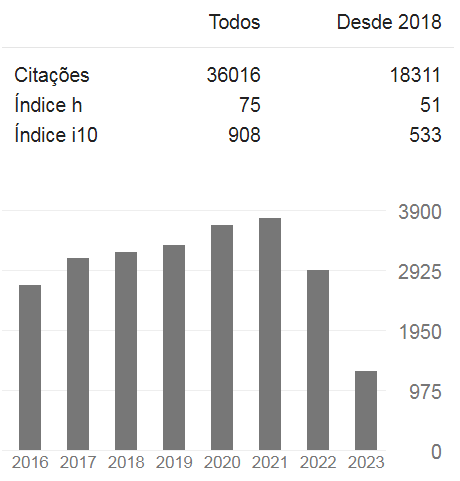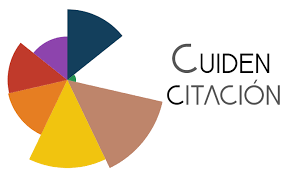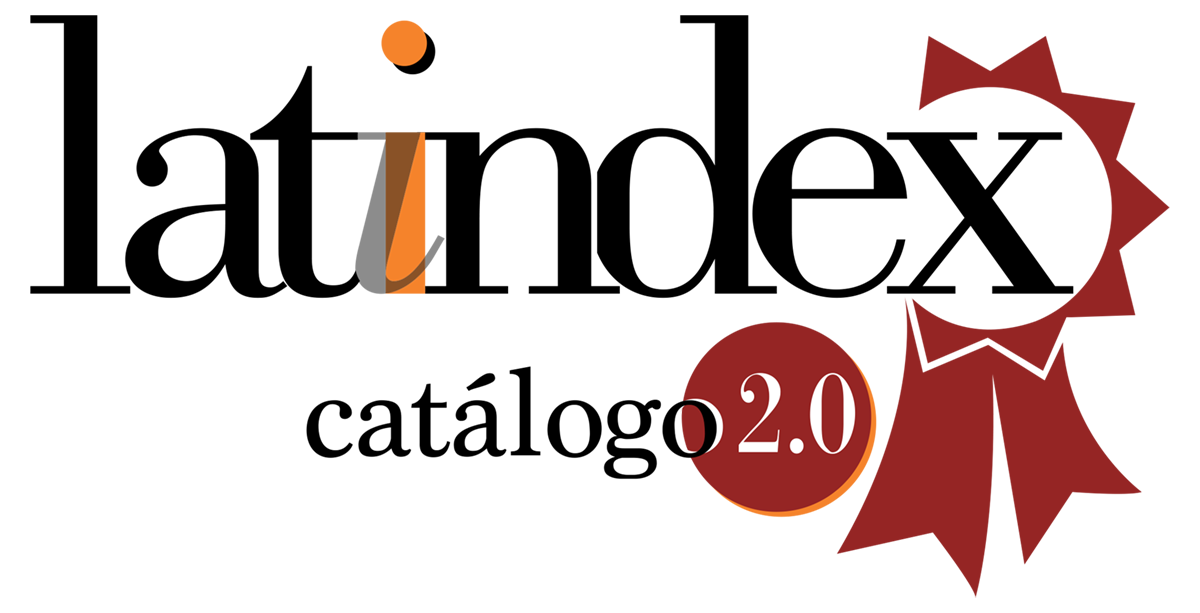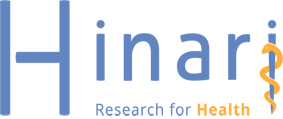Coping strategies during COVID-19 among brazilian nursing professionals
A mixed method study
DOI:
https://doi.org/10.35699/2316-9389.2024.48716Keywords:
Pandemic, Coronavirus Infection, Professionals, Mental Health, Coping Skills, Mixed StudyAbstract
Objective: to describe the strategies used to face the adversities arising from the COVID-19 pandemic by Brazilian nursing professionals and to understand their experiences and feelings emerged in this context. Methods: mixed study, of the parallel-convergent type, carried out with non-probabilistic sampling with 1737 nurse practitioners from different regions of Brazil, by virtual questionnaire, on sociodemographic data and the Coping Strategies Inventory by Folkman and Lazarus. The variables associated with the study were verified by bivariate analysis. The qualitative data were discussed by Categorical-Content Thematic Analysis. Results: in the quantitative stage the coping strategies more frequently used by nurse practitioners were Positive reappraisal (1,26±0,62), Problem-solving (1,14±0,56) and Self-controlling (1,14±0,56). There was also a significative comparison between the strategies Social Support (1,01±0,53), Distancing (0,89±0,50, Accepting responsibility (0,86±0,65), Escape/Avoidance (0,85±0,56) and Confrontation (0,85±0,65). The professionals attributed motivation to move forward, collective support to deal with stressful situations, and the responsibility to fulfill their professional obligations even when faced with a high workload. Conclusions: most nursing professionals used functional strategies to face problems in the context of the pandemic. Using the strategies does not exclude the provision of space for discussing the difficulties related to the daily work of these professionals.
References
-WU F, ZHAO S, YU B et al. A new coronavirus associated with human respiratory disease in China. Nature. 2020 [ citado em 2024 jul. 15], 579(7798):265-269.https://doi.org/10.1038/s41586-020-2008-3
-Organização Pan-Americana de Saúde (OPAS). Histórico da pandemia de COVID-19 [cited 2024 jul 1]. Available from: https://www.paho.org/pt/covid19/historico-da-pandemia-covid-19
-Machado MH et al. Óbitos de médicos e da equipe de enfermagem por COVID-19 no Brasil: uma abordagem sociológica. Ciência & Saúde Coletiva [online]. v. 28, n. 2, pp. 405-419. Disponível em: <https://doi.org/10.1590/1413-81232023282.05942022 https://doi.org/10.1590/1413-81232023282.05942022EN>
-Moreira WC, Sousa AR, Nóbrega MPSS. Mental illness in the general population and health professionals during COVID-19: a scoping review. Texto Contexto Enferm [Internet]. 2020 [citado em 2022 jun. 13], 29 e202002015. Disponível em: https://doi.org/10.1590/1980-265x-tce-2020-0215
-Nasi C, Marcheti PM, Oliveira E, Rezio LA, Zerbetto SR, Queiroz AM, et al. Significados das Vivências de Profissionais de Enfermagem no Contexto da Pandemia da COVID-19. Rev Rene [Internet]. 2021[citado em 2020 jun. 22], 22, e67933. Disponível em: https://doi.org/10.15253/2175-6783.20212267933
-Queiroz AM, Sousa AR, Moreira WC, Nóbrega MPSS; Santos MB, Barbosa LJH, et al. O “NOVO” Da COVID-19: Impactos Na Saúde Mental de Profissionais de Enfermagem?. Acta Paul Enferm [Internet]. 2021 [citado em 2022 jun. 20], 34, eAPE02523. Disponível em: https://doi.org/10.37689/acta-ape/2021ao02523
-Melo LP, Carlotto MS, Spiendler RSY, Diehl L. Estratégias de enfrentamento (coping) em trabalhadores: revisão sistemática da literatura nacional. Arq. bras. psicol. [Internet]. 2016 [citado em 2022 jun. 20], 68(3): 125-144. Disponível em: https://www.redalyc.org/pdf/2290/229053337010.pdf
-Oliveira AT, Monsores AF, Ribeiro WA, Franco AA, Anjos BF, Dias LLC, et al. Fatores Estressores e Estratégias do Enfrentamento do Enfermeiro Intensivista frente ao Novo Coronavírus. Research, Society and Development [Internet]. 2021 [citado em 2022 jun. 22], 10 (9), e31610918119. Disponível em: https://doi.org/10.33448/rsd-v10i9.18119
- Bicalho CSS, Figueiredo KC, Beltran RIL, Pol TAS, Souza GP. Estratégias de coping e liderança autêntica: atuação do enfermeiro em 2021 durante a pandemia de covid-19. Esc Anna Nery [Internet]. 2023;27:e20220192. Available from: https://doi.org/10.1590/2177-9465-EAN-2022-0192pt
- Guetterman TC, Fetters MD, Creswell JW. Integrating quantitative and qualitative results in health science mixed methods research through Joint Displays. Ann Fam Med [Internet]. 2015 [citado em 2022 jun. 13], 13 (6): 554–61. Disponível em: https://doi.org/10.1370/afm.1865
-Savoia MG, Amadera RD. Utilização da versão brasileira do inventário de estratégias de coping em pesquisas da área da saúde. Psicologia Hospitalar [Internet]. 2016 [citado em 2022 jun. 13], 14 (1): 117-138. Disponível em: http://pepsic.bvsalud.org/scielo.php?script=sci_arttext&pid=S1677-74092016000100007
- Bardin L. Análise de Conteúdo. São Paulo: Edições 70, 2016.
- Sousa ES, Hidaka AHV. Coping: Estratégias de Enfrentamento de Profissionais da Saúde Atuantes na assistência durante o contexto de combate à pandemia da COVID-19. Health Resid. J. [Internet]. 2021 [citado em 2022 jun. 20], 2 (12) : 160-187. Disponível em: https://doi.org/10.51723/hrj.v2i12.157
- Zerbetto SR, Marcheti PM, Queiroz AM, Rézio LA, Sousa AR, Oliveira E, et al. Sentidos de esperança dos profissionais de enfermagem no contexto da pandemia da COVID-19. REME - Rev Min Enferm [Internet]. 2022 [citado em 2022 jun. 20], 25, e-1419.Disponível em: http://dx.doi.org/10.5935/1415.2762.20210067
- Melo LP, Carlotto MS, Rodriguez SYS, Diehl L. Estratégias de Enfrentamento (Coping) em trabalhadores:
revisão sistemática da literatura nacional. Arq. bras. psicol. [Internet]. 2016 [citado em 2022 jun. 21], 68 (3): 125-144. Disponível em: http://pepsic.bvsalud.org/scielo.php?script=sci_arttext&pid=S1809-52672016000300010&lng=pt
- Barbosa DJ, Pereira MG, Barbosa ASF, Tosoli AMG. Fatores de estresse nos profissionais de enfermagem no combate à pandemia da COVID-19: síntese de evidências. Com. Ciências Saúde [Internet]. 2020 [citado em 2022 jun. 13], 31 (Suppl1): 31-47. Disponível em: https://doi.org/10.51723/ccs.v31iSuppl%201.651
-Jerath R, Edry JW, Barnes VA, Jerath V. Physiology of long pranayamic breathing: neural respiratory elements may provide a mechanism that explains how slow deep breathing shifts the autonomic nervous system. Med Hypotheses [Internet]. 2006 [citado em 2022 jun. 14], 67 (3) : 566-71. Disponível em: https://doi.org/10.1016/j.mehy.2006.02.042
- Labrague LJ, Santos JAA. COVID-19 Anxiety among front-line nurses: predictive role of organisational support, personal resilience and social support. J Nurs Manag [Internet]. 2020 [citado em 2022 jun. 20], 28 (7): 1653-61. Disponível em: https://doi.org/10.1111/jonm.13121
- Galanis P, Vraka I, Fragkou D, Bilali A, Kaitelidou D. Nurses’ burnout and associated risk factors during the COVID-19 Pandemic: a systematic review and meta-analysis. J Adv Nurs [Internet]. 2021 [citado em 2022 jun. 21], 77 (8): 3286-3302. Disponível em: https://doi.org/10.1111/jan.14839
- Dutra FCMS, Costa LC, Sampaio RF. A influência do afastamento do trabalho na percepção de saúde e qualidade de vida de indivíduos adultos. Fisioter Pesq [Internet]. 2016 [citado em 2022 jun. 10], 23 (1): 98-104. Disponível em: https://doi.org/10.1590/1809-2950/14900923012016
- Cortés-Álvarez NY, Vuelvas-Olmos CR. COVID 19: Psychological Effects and associated factors in mexican nurses. Disaster Med Public Health Prep [Internet]. 2020 [citado em 2022 jun. 20], 1-23. Disponível em: https://doi.org/10.1017/dmp.2020.495
- Straub CBS, Lessa BRI, Crozeta FK, Porfírio SG, Almeida SPT. Estratégias de coping utilizadas pelos enfermeiros diante do stress no gerenciamento da crise da Covid-19. Nursing (Ed. bras., Impr. [Internet]. 2022 [citado em 2022 jun. 20], 25 (286): 7436-45. Disponível em: https://doi.org/10.36489/nursing.2022v25i286p7436-7445
- Li S, Wang Y, Xue J, Zhao N, Zhu T. The Impact of COVID-19 epidemic declaration on psychological consequences: a study on active weibo users. Int J Environ Res Public Health[Internet]. 2020 [citado em 2022 jun. 20], 17(6): 2032. Disponível em: https://doi.org/10.3390/ijerph17062032
- Lai J, Ma S, Wang Y, Cai Z, Hu J, Wei N, et al. Factors associated with mental health outcomes among health care workers exposed to coronavirus disease 2019. JAMA Netw Open [Internet]. 2020 [citado em 2022 jun. 16], 3 (3): e203976. Disponível em: https://doi.org/10.1001/jamanetworkopen.2020.3976
- Koopmann A, Georgiadou E, Reinhard I, Müller A, Lemenager T, Kiefer F, et al. The effects of the lockdown during the COVID-19 pandemic on alcohol and tobacco consumption behavior in Germany. Eur Addict Res [Internet]. 2021 [citado em 2022 jun. 20], 1-15. Disponível em: https://doi.org/10.1159/000515438
-Vanderbruggen N, Matthys F, Laere SV, Zeeuws D, Santermans L, Ameele SV, et al. Self-reported alcohol, tobacco, and cannabis use during COVID-19 Lockdown Measures: Results from a Web-Based Survey. Eur Addict Res [Internet]. 2020 [citado em 2022 jun. 16], 26 (6): 309-15. Disponível em: https://doi.org/10.1159/000510822
- Martínez-Cao C, Fuente-Tomás L, Menéndez-Miranda I, Velasco Á, Zurrón-Madera P, García-Álvarez L, et al. Factors associated with alcohol and tobacco consumption as a coping strategy to deal with the coronavirus disease (COVID-19) Pandemic and lockdown in Spain. Addict Behav [Internet]. 2021 [citado em 2022 jun. 18], Oct:121:107003. Disponível em: https://doi.org/10.1016/j.addbeh.2021.107003
- Pimentel RS, Barbosa SC, Silva SS, Patrício DF. Burnout e estratégias de enfrentamento em profissionais de enfermagem. Arquivos Brasileiros de Psicologia [Internet]. 2015 [citado em 2022 jun. 19], 67(1): 130-145. Disponível em: http://pepsic.bvsalud.org/scielo.php?script=sci_arttext&pid=S1809-52672015000100010&lng=pt
Additional Files
Published
Issue
Section
License
Copyright (c) 2024 REME-Revista Mineira de Enfermagem

This work is licensed under a Creative Commons Attribution 4.0 International License.






































